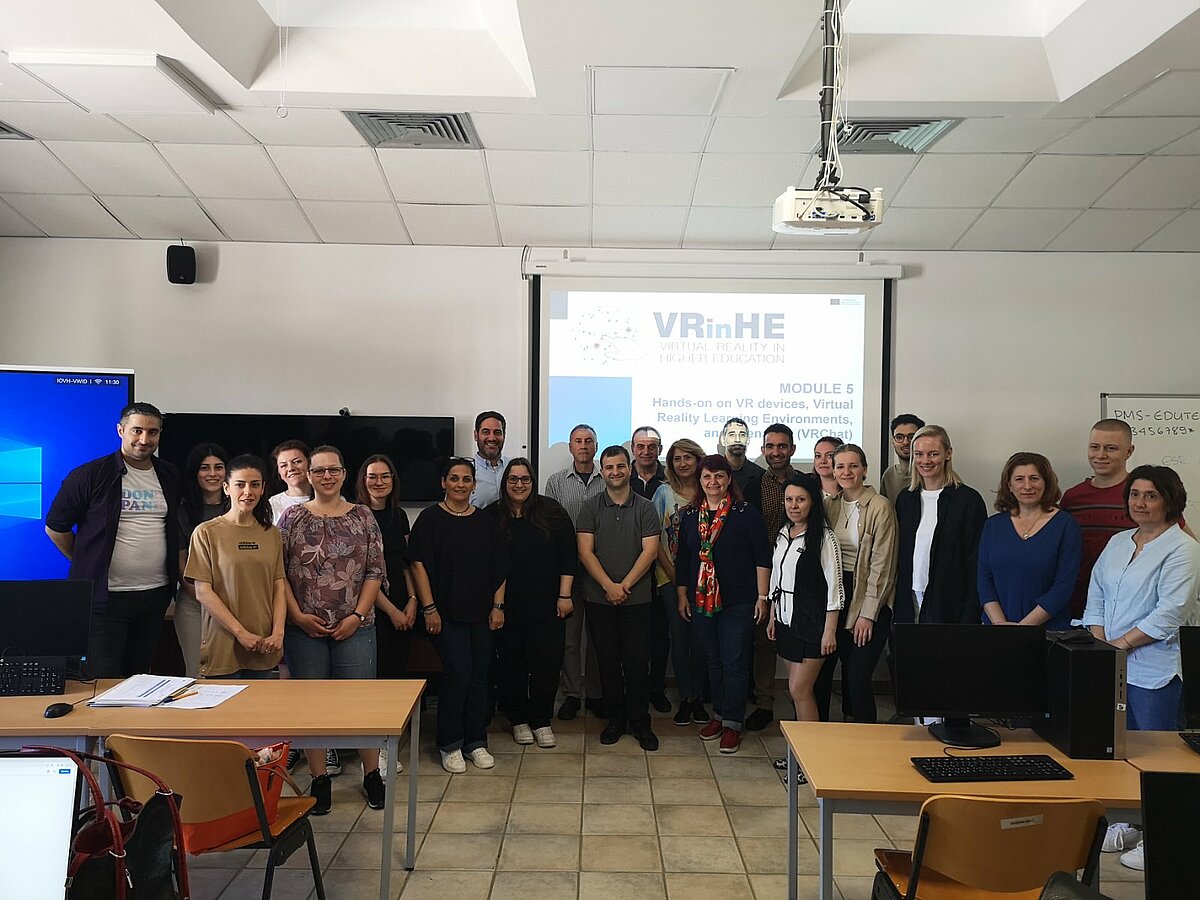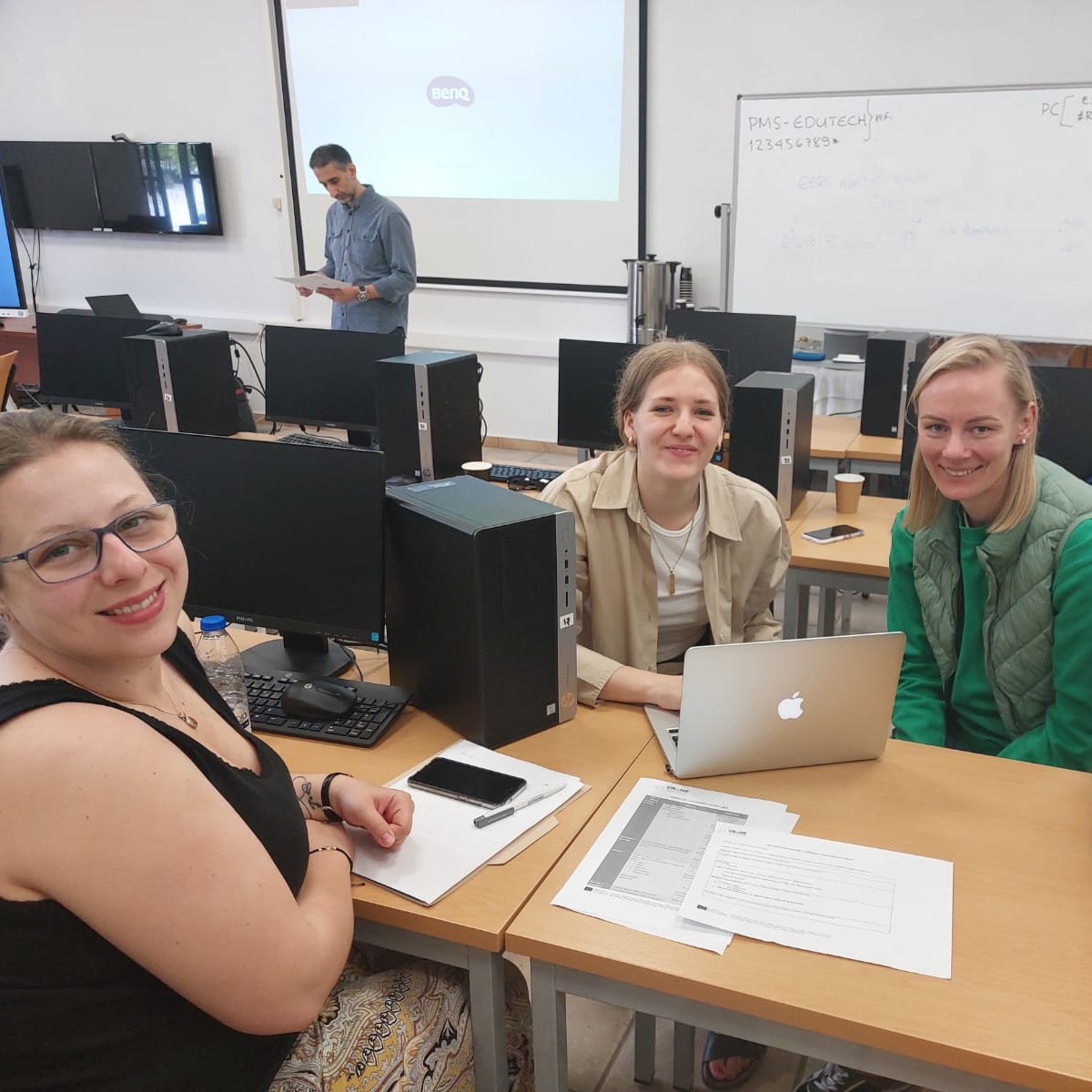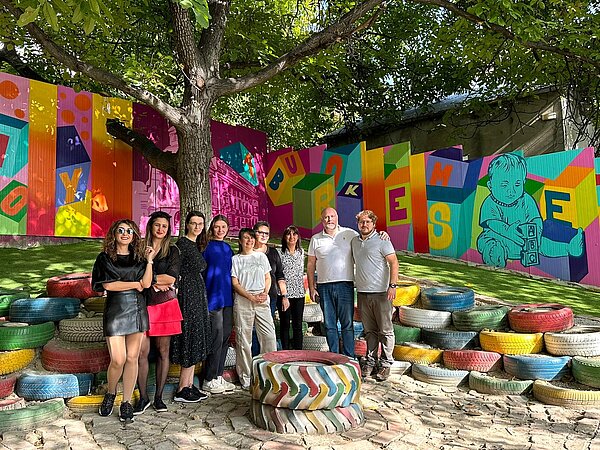
At the beginning of October, another face-to-face meeting of the ERASMUS+ KA2 cooperation partnership project "Teachers’ Action for Health" (TA4H) took place at the EuroEd premises in the city of Iasi, Romania, where representatives from Latvia, Türkiye, Greece, Romania, Lithuania and Bulgaria.
On the 3rd of October, the results of the needs analysis surveys were reviewed and the 13 most relevant first aid topics along with 8 chronic diseases were selected, which will be included in the form of modules on the project website and mobile application. All participants were given a great opportunity to see to see EuroEd pre and primary school educational facilities in which the latest trends in education are used in the learning process to ensure a quality learning process.
The target groups of the project: preschool and primary school teachers.
In the project, the University of Latvia (UL) is represented by: Professor Linda Daniela, Dean of UL FEPA and UL FEPA lecturer, first aid expert Mikelis Pukitis.
Project number: (2022-1-TR01-KA220-SCH-000089892)
Project deadline: 31.12.2022. – 30.12.2024
The leading partner of the project: Cigli Ilce Milli Egitim Mudurlugu, Türkiye


In April 2023, researchers from the University of Latvia's Institute of Pedagogy, along with collaborators from seven other countries, took part in the "Integrating Virtual and Augmented Reality in Higher Education Curricula" project. This event was held in Rhodes, Greece. Alongside the training sessions, there was also a second meeting for the project partners in person. The aim of this project is to enhance the abilities of higher education staff in using virtual and augmented reality technologies, promoting their use in educational settings.
The project developed a comprehensive training program to familiarize participants with virtual and augmented reality technologies, exploring how they can be integrated into higher education. The training included seven modules that ranged from a theoretical overview of immersive technologies, distinguishing between virtual and augmented reality, to learning theories and findings from various studies. It also covered the benefits of using these technologies in education and discussed potential risks. Practical tools were introduced during the training to help educators create content in virtual reality or augment existing teaching materials for use with augmented reality technologies.
The University of Latvia's Institute of Pedagogy contributed significantly to the "Integration of Virtual Reality in Education" module, providing both content and instruction. Training participants were also briefed on research conducted within the "Technology Innovation and Design in Education" master's program at the University of Latvia's Faculty of Education, Psychology, and Art, focusing on integrating augmented and virtual reality in education. This part of the training was especially well-received.
The project's website, www.vr-in-he.eu, offers more information, and updates can be followed on Facebook and Instagram at www.facebook.com/VRinHE and www.instagram.com/vrinhe/, respectively.
The partnership includes the lead partner, University of Ruse (Bulgaria), and contributions from Greece (University of the Aegean), Austria (The European Network for the Transfer and Exploitation of EU Project Results), Bulgaria (Bulgarian-Romanian Chamber of Commerce and Industry), Latvia (University of Latvia), and Cyprus (University of Nicosia & Center for the Advancement of Research & Development in Educational Technology).
The University of Latvia's team includes Prof. Linda Daniela (project leader), Zinta Zālīte-Supe (scientific assistant), Anna Ansone (expert), and Ieva Tenberga (expert).
Project Number: 2021-1-BG00-KA220-HED-000032128



 Academic Centre
Academic Centre
